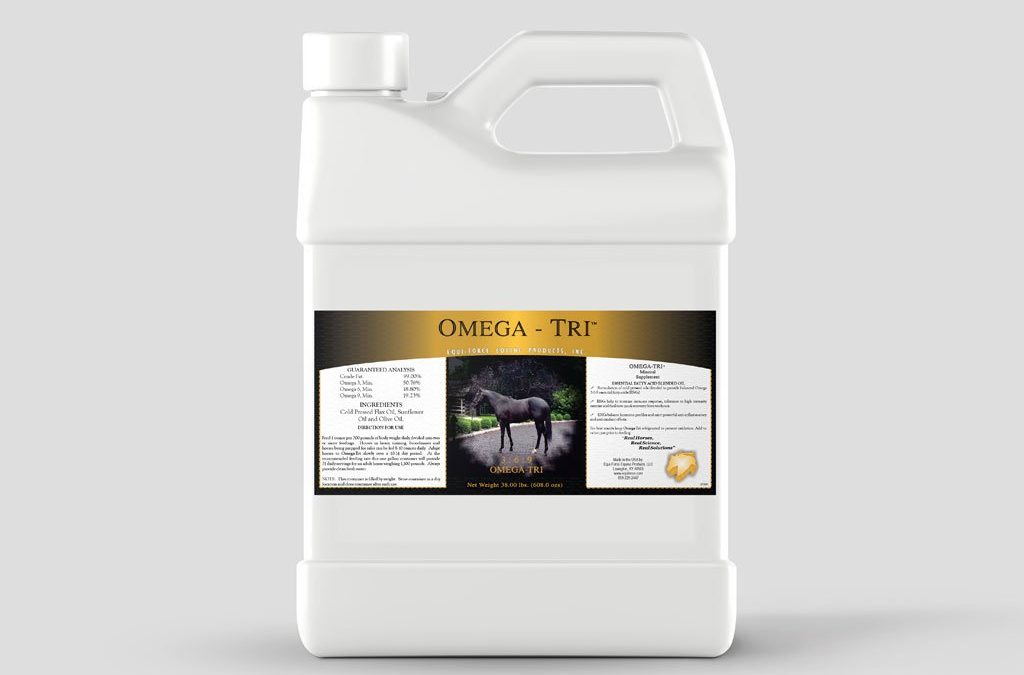OmegaTri and the Equine – Reducing Inflammation, Restoring Balance
The topic of oil supplementation for the horse is a common discussion among horse owners. Often when you walk into someone’s feed room you may see bottles of corn oil, sunflower oil, or fish oil. What are these oils trying to accomplish? For some, it might be to improve coat quality or to help add weight, but the type of oil product that will be looked at today has another purpose – reducing inflammation and restoring balance to the equine diet.
OmegaTri oil is different from the oil products that you may see stocked in a feed room. Produced from cold pressed unrefined flaxseed oil, sunflower oil, and olive oil, OmegaTri is a blend of pure vegetarian seed oil. This blend provides the correct balance of 3:6:9 Omega fatty acids to increase the overall Omega 3 content in the equine diet.
The equine diet is often devoid of Omega 3 and overloaded with Omega 6. What happens when the equine diet has too much Omega 6 over Omega 3? Well, the diagram below gives a simple answer to this:
Too much Omega 6 actually can lead to inflammatory effects, while Omega 3 leads to anti-inflammatory effects. While you do not want too much Omega 6, it is necessary to have some in the diet for the balance. That is why OmegaTri is a simple solution to the balance of Omega 3 fatty acids; you can be sure that your horse is receiving the proper balance he needs. OmegaTri also provides 54% Linolenic Acid, which is the Omega 3 fatty acid that is converted into Decosahexaenoic Acid (DHA), a powerful anti-inflammatory.
When that proper balance is obtained and maintained through OmegaTri, it helps:
- Reduce inflammation in the body
- Increase immune response
- Reduce oxidative damage
- Improve hormonal balance
- Improve inflammatory bowel conditions
- Horses that bleed during intense exercise
- Improve semen characteristics, such as the number of live sperm and viability
Balancing the Omega fatty acid content in the equine diet can be confusing, but it does not have to. LetOmegaTri do the work.
This blog post was originally posted on Thursday, August 11th, 2011 at Equine Nutrition and Health Services Blog. Blog article was re-posted with permission from blog owner, all rights reserved.


